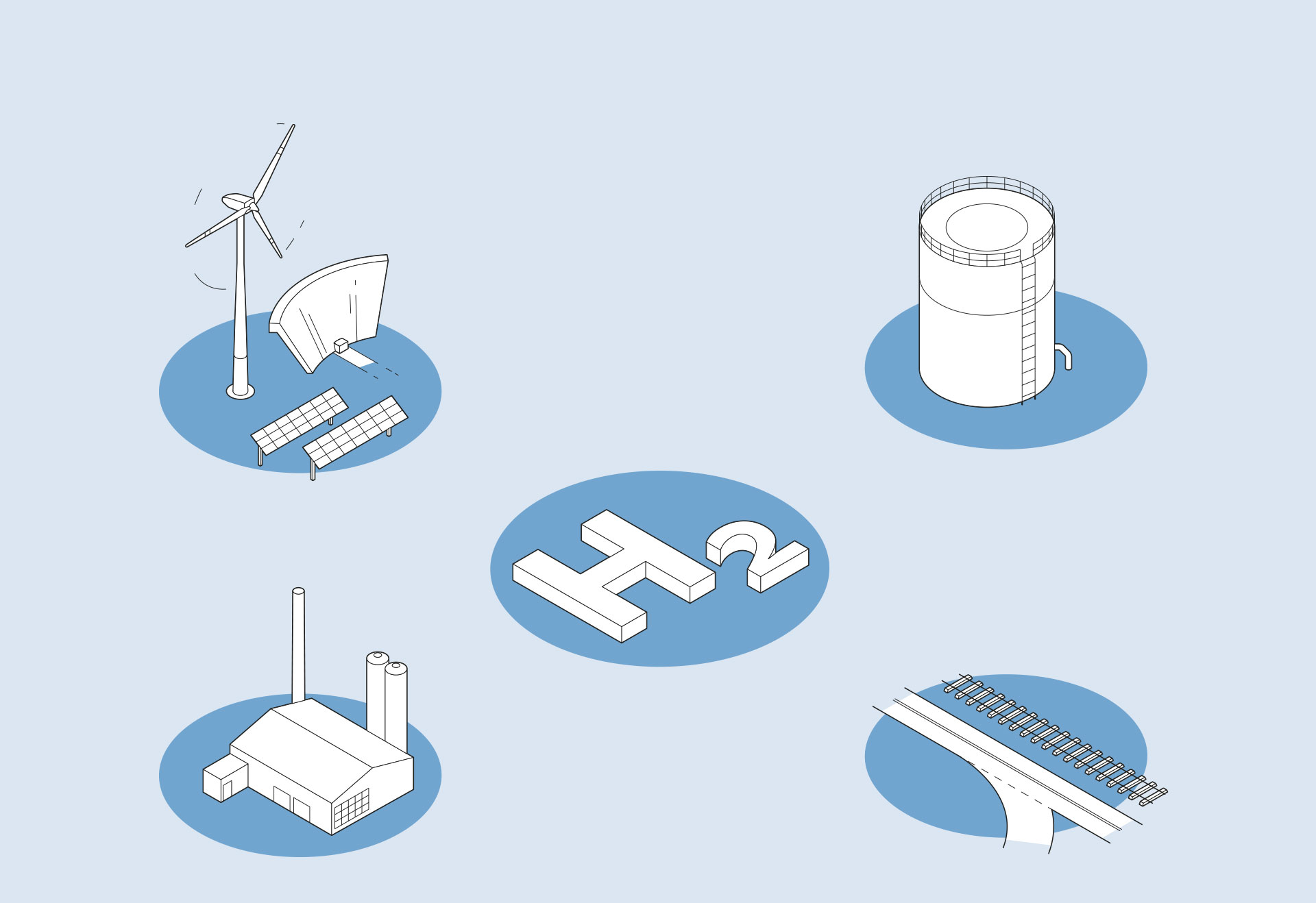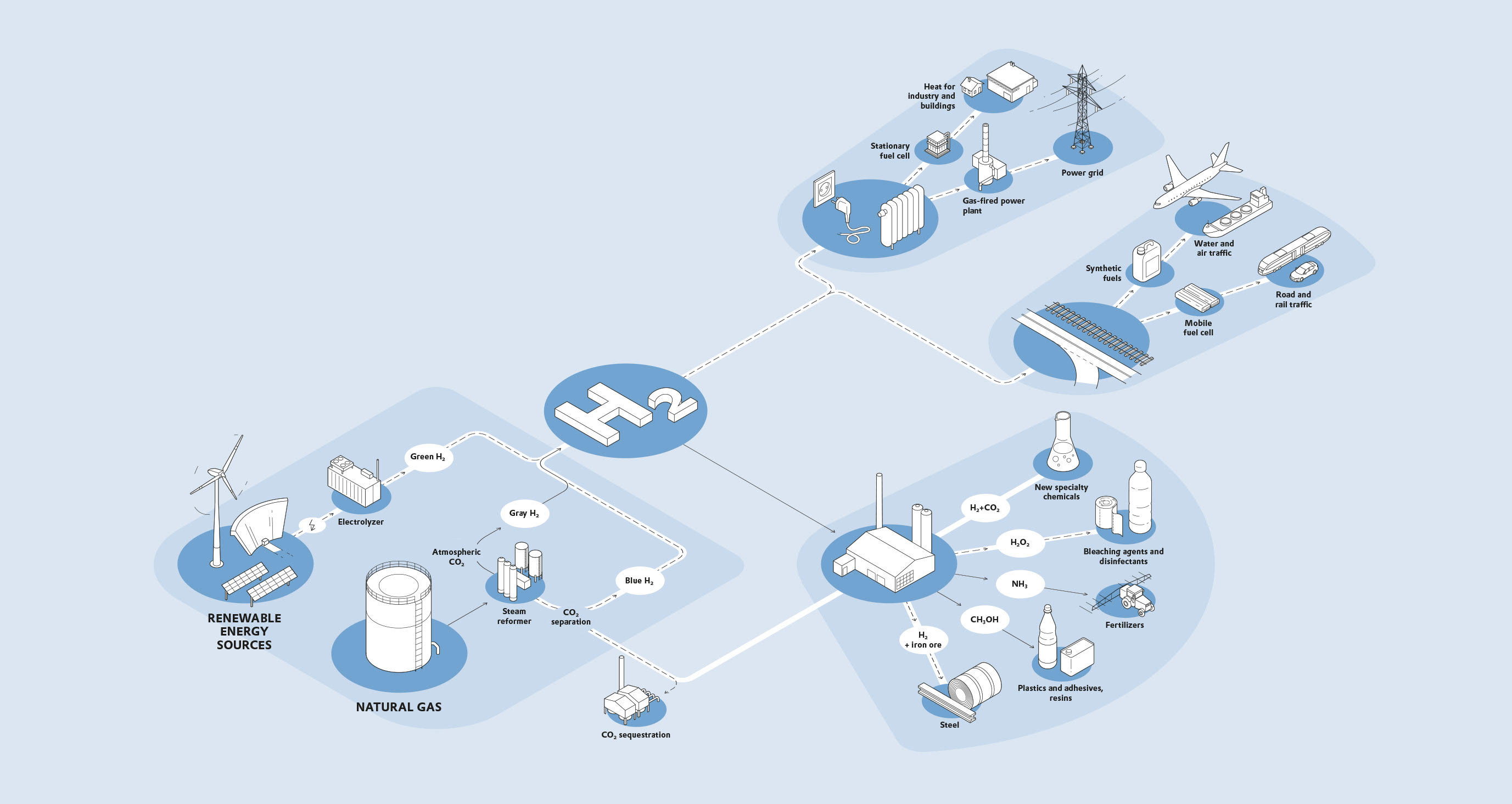EXTREMELY USEFUL
Hydrogen is already being used today in the energy sector, industrial applications, and drive systems. Although this sometimes occurs on a large scale, its use is often still restricted to tests and small numbers of units. This overview shows the economic potential of this gas — from its production and processing to its use
INFOGRAPHICMAXIMILIAN NERTINGER
Included Media
Interactive Infographic


PUBLICATION DATE
03TH July 2020

Water electrolysis
The membrane is the key
AEM electrolysis is expected to produce large amounts of green hydrogen. A new membrane will make it possible.

The energy transition
Hydrogen: The energy carrier of the future
Jorgo Chatzimarkakis and Hans-Josef Fell discuss the role of hydrogen in the energy supply of the future.

In my element
“How we discovered Darmstadtium”
The nuclear physicist Prof. Sigurd Hofmann on a new element that he was allowed to name after his home town.

In my element
“My fate depends on hydrogen”
Kurt Frieden likes to get carried away through the air by hydrogen – the lightest element on earth.



